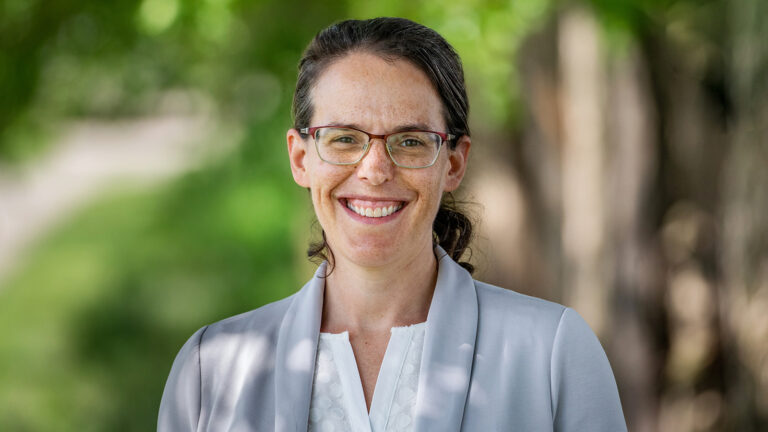URBANA — The number of new COVID-19 cases on the University of Illinois Urbana campus has jumped over the last week. Campus officials reported 220 new cases over the last seven days, about three times as many as the previous week.
To learn more, Illinois Newsroom’s Brian Moline spoke with U of I epidemiologist Rebecca Smith, who is part of the campus SHIELD team.
Listen to this story here.
She started by saying that the number of new cases is higher than she’d like to see, but it is not a huge surprise.
A transcript of this conversation is below. It has been lightly edited for clarity.
Rebecca Smith: We knew that with the colder weather, plus Halloween, plus the end of midterms, all of those factors work against us. As far as increase in cases, we are seeing a large number of clusters within particular buildings. This is one of the things we look for. So, a lot of these cases are within clusters. We know that students who live together tend to socialize together. So that makes sense. So, it’s concerning that we are seeing this spread, but we think it just that people let their guard down and moved indoors. And we were expecting that, we were asking people, prior to Halloween, please get tested. If you’re going to go participate, please get tested, if you did participate. I’ve seen a lot more people testing more frequently, even among the vaccinated, and we are asking a number of vaccinated people who live in these potential clusters to get tested. So, it was expected, it’s a little higher than we would like to see. But we are seeing the same patterns that we would expect with any of these clusters, that it’s definitely socialization indoors.
Brian Moline: You talked about asking even some vaccinated folks to get tested. And a couple of things come to mind there. Certainly the campus vaccination rates are really pretty good. I’m seeing 94% overall on campus fully vaccinated. The staff number, I think, is up to 89%, which is, the highest it’s been. Are you seeing a number of breakthrough cases at this point, or are the bulk of the cases on campus still among those who are unvaccinated?
RS: So, when the high number of vaccinated people on campus, the pure number of cases that are among the vaccinated is going to be higher, simply just because it’s it’s a bigger denominator, but the risk of infection is much higher among the unvaccinated. So so even though we have very few unvaccinated undergraduate students, we do see a much higher risk of infection among those. But as I said, with so many vaccinated students, we do see numerically a bigger number among the vaccinated.
BM: And you also mentioned the testing component. At some point, would the university look at possibly asking fully vaccinated people to once again start testing on a regular basis, just to maybe try and catch some of these cases before they before they spread more?
RS: So, we actually do that, but we do it in a targeted manner. Like I said, a lot of these cases are occurring in clusters based on where people live. So, when we find one of those clusters, we ask everybody who lives there to test every other day, including the vaccinated people. And that is a requirement, they are required to test until we tell them otherwise. So that’s much more efficient than requiring all vaccinated people to test, to look at these clusters.
BM: And then, Becky, as we start to get close to the holidays, Thanksgiving now just a couple of weeks away, what are your recommendation for those who are on campus? Who will be traveling for that holiday, maybe to see family, friends, off of campus during that period? What are your recommendations for them?
RS: So, it’s very similar to my recommendation from last year, which is, be careful for the next couple of weeks. You don’t want to bring the infection home. Get tested before you leave. You can get results early and find out if you’re going to be safe to be around unvaccinated people. And when you come back, get tested again before you start socializing here on campus, just in case you were exposed during the Thanksgiving holiday.
BM: Becky, anything else that you’d like to add before we wrap it up here?
RS: Just that, remember that the vaccine is very good at protecting you from illness, from the disease part of it, but it’s not perfect at preventing infections. So don’t rely on just the vaccine. It has to be vaccines and masks and ventilation.
Follow Brian on Twitter @BrianMolineWILL

